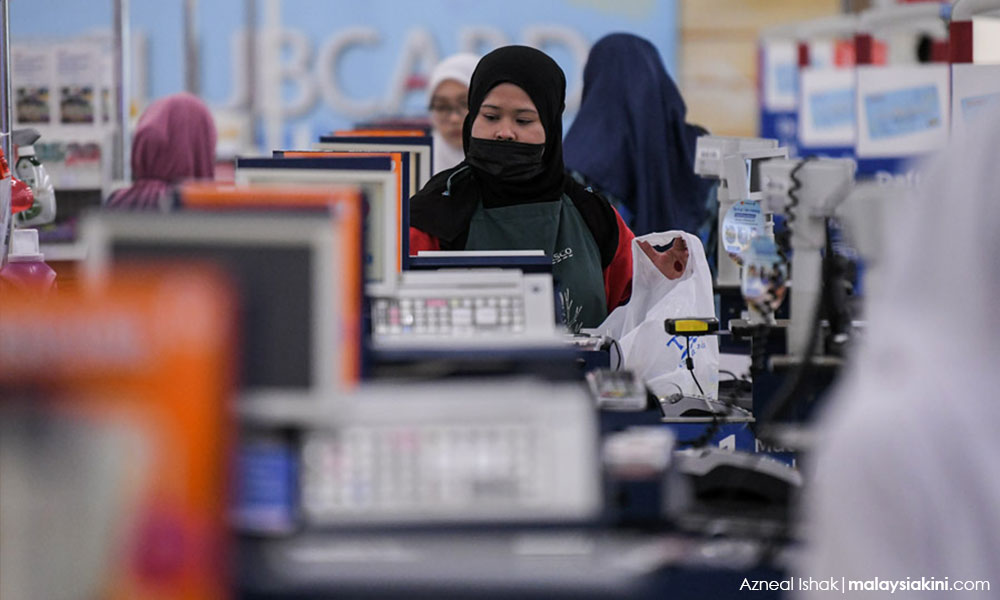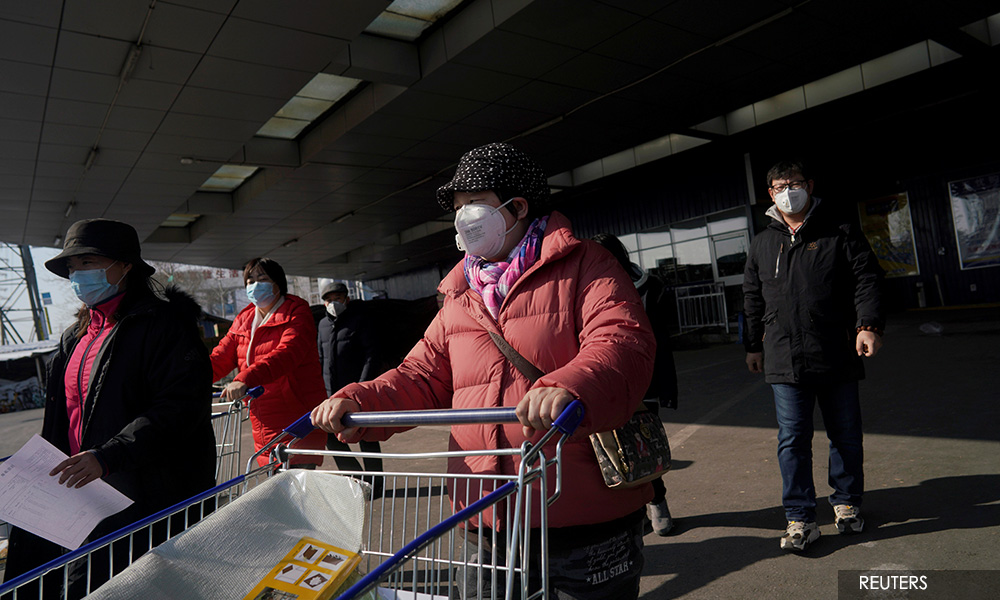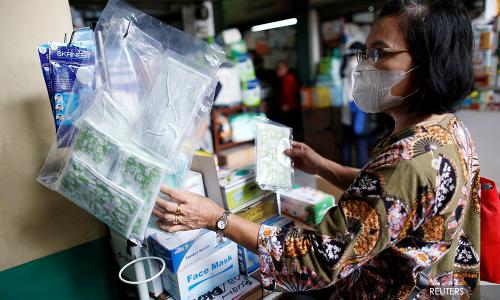The 'virus' of panic buying
LETTER | Along with the spread of Covid-19 comes the artificial fear of another "virus" - panic buying. And if you think that it all started in Singapore, think again.
Quite early into the epidemic, there was already panic buying – a subtle one that did not lend itself to going viral on social media, as there is an absence of kiasu people hoarding things - either in pictures or videos.
Kiasu is a Hokkien word that denotes a grasping, selfish attitude that arises from a fear of missing out.
At this early stage, this kiasu-ness is felt whenever you want to buy a mask or hand sanitiser, especially at the pharmacy, the answer is always a standard one - “out of stock”.
But the strange thing is there is no problem with toilet paper - plenty of stock - at this stage.
There are always unintended consequences of panic buying even at this early stage. If masks are hoarded, doctors and nurses at government or private clinics will be running out of masks which are crucial for them as a protective measure.
These front-line doctors and nurses perform a very important role to determine who needs to be quarantined, and without a mask, they could be infected.
If quite a number of them are down because of infection, the situation will be quite overwhelming in hospitals and clinics.
Worse still, it could lead to rumour-mongering when the shortage of masks is attributed to the failure of the authorities to manage supply for the people, when there are actually enough masks for the population.
Yes, we are aware of the two sides of the debate, even among the medical profession, about whether healthy people should wear a mask during a crisis such as Covid-19.
We hear arguments that the air is polluted with carcinogens anyway, what’s wrong with healthy people wearing masks, which some have been doing when things were normal and there was no outbreak.
But this is not a normal time. This is the time of an epidemic. The normal way of doing things will definitely have unintended consequences.
To appease both sides, if you’re really healthy it is up to you to put on a mask, and if you decide to put on a mask, please don’t hoard it. Have some thought for others who may need it more than you do.

Panic buying during a time of crisis or emergency may seem natural and instinctive to many. But then, we are also reminded or need to be reminded that there are unintended consequences.
In the context of Covid-19, panic buying does not necessarily enhance our preparedness to solve or deal with the terror of this epidemic.
It heightens public distress and, most importantly, it might trigger massive inflation on the price of necessities. Thus, panic buying could have a knock-on effect on the cost of living and exacerbate the hardships of people in their daily living.
The situation of panic buying did not start until recently when Singapore raised its Disease Outbreak Response System Condition (Dorscon) alert level from yellow to orange.
Orange indicates a moderate level of threat which is just a tad below red. Red in turn indicates a major level of threat and hence a state of emergency and possibly lockdown or curfew.
Before this, Singapore had announced the alert level to orange twice - during the Severe Acute Respiratory Syndrome (Sars) in 2003 and the H1N1 swine flu outbreak in 2009. At the time, there was no panic buying and most Singaporeans were calm.
This time around, shortly after the announcement, people came out in droves to buy everything they needed, as much as they can, probably thinking that they would be well prepared should the Singapore government decide to raise the alert level to red.
Some might correctly think the change in alert denotes the infection rate is getting serious but they forget that panic buying will not solve the problem.
Within days, daily necessity items ran out in most of the supermarkets – animated by jittery expectations of a possible (temporary) self-quarantine advice or even imposition of such a measure by the government.
From Singapore, the “virus” of panic buying travelled to Johor Bahru after some Singaporeans went to Johor and continued their buying spree, in what we Malaysians would consider as kiasu-ism par excellence, earning the ire of many Johoreans.
From Johor Bahru, the virus of panic buying spread to Hong Kong. Hong Kongers have also succumbed to wide-spread rumours, and hoarding a lot of daily necessity items.
On February 16, three masked robbers reportedly pilfered 600 toilet rolls from a supermarket in Hong Kong because of the panic buying that was started by a shortage rumour.

From Hong Kong, it travelled to Taiwan. Rumours whirled around that the production of surgical masks has depleted the raw materials used to produce toilet papers, prompting a massive panic buying in Taiwan.
Let’s hope that the virus of panic buying ends in Taiwan. It has already ended in Singapore, Johor Bahru and Hong Kong.
Some might think that it is always “better to be safe than sorry”. True enough. But the saying does not necessarily and logically apply here.
It is more reasonable to adopt a “wait-and-see” attitude. Waiting, as in taking all necessary and precautionary measures relevant for now such as buying adequate amounts of masks and sanitisers. At the same time, be constantly alert for latest developments and it is critical to be mentally prepared that the Covid-19 outbreak may not be over anytime soon.
It will force us to take the steps (sans panic buying) to cushion against the impact on our daily life in areas such as logistics/transportation, workplace arrangements and business.
So, instead of pursuing a “wild goose chase” – which is unproductive, it is far better to focus our minds and efforts towards the “bigger” picture.
In Malaysia and Singapore, there is no reason not to follow the lead of the government. Doing otherwise will produce the unintended consequences of harming others who are in need of the items the most.
The writers are part of the research team at Emir Research.
The views expressed here are those of the author/contributor and do not necessarily represent the views of Malaysiakini.
RM12.50 / month
- Unlimited access to award-winning journalism
- Comment and share your opinions on all our articles
- Gift interesting stories to your friends
- Tax deductable
